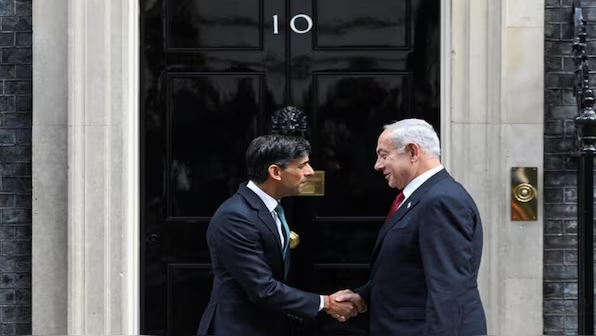Britain’s approval of arms export licenses to Israel saw a dramatic reduction after the onset of the conflict with Hamas in Gaza. This article delves into the reasons behind this significant drop, the comparative figures over the years, and the broader implications of arms sales to Israel amidst ongoing conflict.
A Historic Drop in Arms Export Licenses
Unprecedented Decline
The value of permits granted for the sale of military equipment to Israel fell by over 95% to a 13-year low. Between October 7 and December 31 last year, British-approved licenses amounted to £859,381 ($1.09 million). This starkly contrasts with the £20 million approved for the same period in 2022. The last time such a low figure was recorded for this period was in 2010.
Comparative Analysis
In 2017, the British government approved £185 million in arms sales to Israel within the same timeframe, highlighting the magnitude of the recent decline. This period saw approvals for components used in tanks and surface-to-air missiles, the highest in publicly available data dating back to 2008.
Controversy Surrounding Arms Sales
Political and Public Outcry
Arms sales to Israel have long been a contentious issue, with many politicians and pro-Palestinian groups advocating for a halt due to the high civilian casualties and extensive destruction in Gaza. The British government maintains that Israel has the right to self-defense and continues to approve licenses under strict legal guidelines.
Government’s Stance and Legalities
The Department for Business and Trade insists that licenses are still being granted for non-lethal items and certain military components. The review process is described as stringent, with the most recent legal advice supporting the continuation of arms transfers to Israel. Unlike the U.S., Britain does not directly supply arms but issues licenses for companies to sell weapons, ensuring compliance with international law.
Global Arms Sales Dynamics
United States and Germany
While Britain’s arms exports to Israel have plummeted, the United States and Germany have increased their sales. Germany’s arms exports to Israel last year were valued at €326 million, a tenfold increase from 2022. However, approvals dropped to around €10 million in the first quarter of this year.
Restrictions by Other Countries
Countries like Italy, Canada, and the Netherlands have imposed restrictions on arms exports to Israel due to concerns over their potential use in the conflict. These measures reflect a growing international scrutiny over arms sales amid escalating violence.
Britain’s Careful Licensing Regime
Prime Minister’s Stance
British Prime Minister Rishi Sunak has been a staunch advocate for Israel’s right to respond robustly to Hamas attacks. Despite calls to halt arms transfers, Sunak asserts that the government follows a meticulous licensing regime. Upcoming reports are expected to shed more light on arms sales to Israel for the first half of this year.
Historical Precedents
The British government has previously blocked arms sales to Israel, notably in 2009 and 1982. These historical instances underline the conditional nature of arms export policies, contingent on the geopolitical landscape and conflict dynamics.
Conclusion
The sharp decline in Britain’s arms export licenses to Israel marks a significant shift in its stance amid the Gaza conflict. While maintaining a careful licensing regime, the British government faces ongoing scrutiny and pressure both domestically and internationally. The future of arms sales to Israel will likely continue to evolve in response to the unfolding humanitarian and political scenarios in the region.


